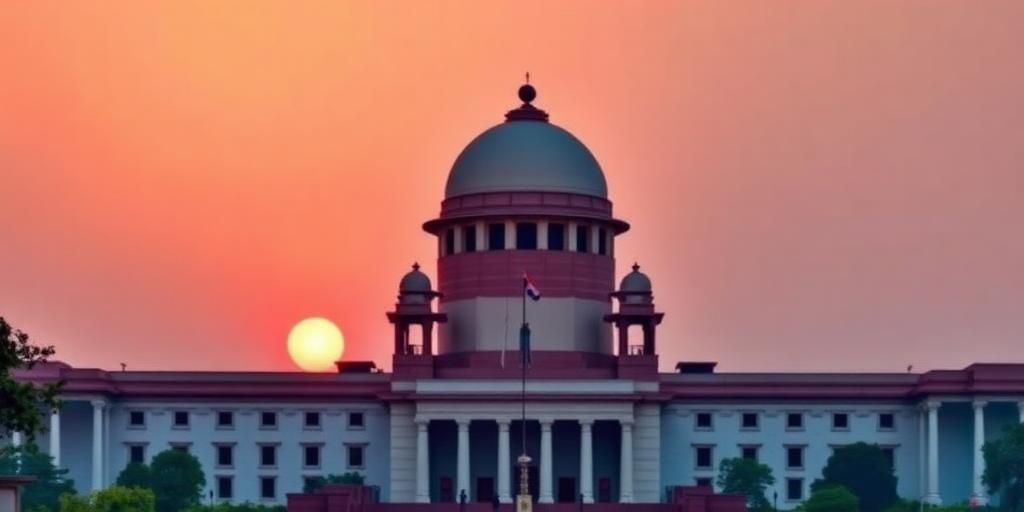The Supreme Court of India stands as the pinnacle of the Indian judicial system, an institution imbued with immense constitutional authority and a pivotal role in shaping the nation's democratic fabric. Established on January 28, 1950, it serves as the ultimate interpreter of the Constitution and the final arbiter of justice. Its journey reflects India's evolution, constantly adapting to the socio-political dynamism while steadfastly upholding the rule of law. Understanding the Supreme Court in Modern India requires an appreciation of its multi-faceted functions and its profound impact on governance and citizen's rights.
The Guardian of the Constitution
At its core, the Supreme Court's primary function is to act as the guardian of the Indian Constitution. Through its power of judicial review, it scrutinizes legislative enactments and executive actions, ensuring their conformity with constitutional provisions. This crucial oversight prevents any branch of government from overstepping its designated powers, thereby preserving the delicate balance of separation of powers. Its interpretations of fundamental principles, such as the basic structure doctrine, have profoundly shaped constitutional jurisprudence, establishing limitations on parliamentary amendment powers and safeguarding the Constitution's core tenets. The court's decisions define the boundaries of law and policy, making it an indispensable pillar of constitutional governance.
Protector of Fundamental Rights
Beyond constitutional interpretation, the Supreme Court is the ultimate custodian and guarantor of the fundamental rights enshrined in Part III of the Constitution. Citizens can directly approach the Court for the enforcement of these rights, making it a powerful check against state excesses. The introduction of Public Interest Litigations (PILs) further expanded its reach, allowing it to address systemic injustices and protect the rights of marginalized communities, even when the aggrieved parties cannot approach the court themselves. This proactive stance has positioned the judiciary as a vigilant protector of human dignity and liberty, significantly impacting areas from environmental protection to social justice and the rights of vulnerable groups. This vital aspect underscores the enduring significance of the Indian judiciary's role.
Apex Court of Appeal and Legal Consistency
As the apex appellate body, the Supreme Court hears appeals against judgments of High Courts and other tribunals across the country. This function is crucial for ensuring uniformity and consistency in the application and interpretation of law throughout India. Its pronouncements become binding precedent for all lower courts, establishing a cohesive legal framework. This appellate jurisdiction helps rectify judicial errors, promotes legal certainty, and reinforces public faith in the judicial system as the final recourse for justice. The meticulous analysis and reasoned judgments emanating from the Supreme Court are fundamental to maintaining legal coherence and integrity.
Balancing Powers and Impact on Governance
The Supreme Court actively participates in the system of checks and balances, ensuring accountability of the executive and legislative branches. Its pronouncements often guide policy formulation, impact administrative actions, and even influence electoral processes. While adhering to judicial restraint, the Court has not shied away from intervening in matters of national importance, ranging from electoral reforms to financial accountability and environmental governance. This dynamic interaction ensures that all organs of the state operate within constitutional limits, contributing significantly to good governance and democratic stability. The Court's influence extends far beyond legal judgments, subtly shaping the direction of public life.
Conclusion
The Supreme Court in Modern India is far more than a mere legal institution; it is a vital guardian of democracy, a protector of rights, and a constant interpreter of the nation's foundational document. Its authority is derived from the Constitution and fortified by public trust. While facing challenges such as case backlogs and judicial appointments, its historical trajectory reveals an unwavering commitment to justice and constitutionalism. Its evolving role continues to define the contours of Indian democracy, underscoring its indispensable position in ensuring a just, equitable, and constitutionally governed society.









